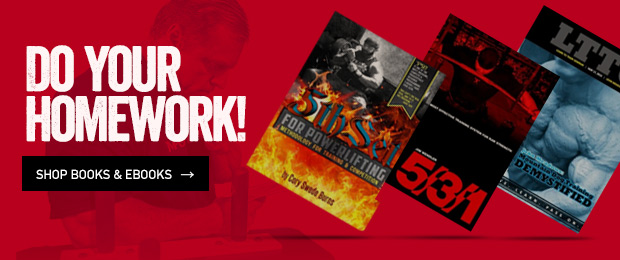
Here we go again. My last two graduate assistants just graduated last month, and I am on the hunt for two new ones. This happens every two years, and I seem to forget how difficult candidates make it on themselves. The last two coaches were awesome, did a great job, and really matured as coaches. Looking back on their resumes and correspondence when they applied for the position here, it is not hard to figure out why. They crossed all of the T’s and dotted all of the I’s.
Being at a smaller school, I need grad assistants who can coach. You will get the full gamut of what it really takes to be a strength coach: meeting with sports coaches, programming, scheduling, pre-game warm-ups, meeting with players, and on and on. You are treated as an assistant by me, the AD, coaches, and athletes. Maybe that is why I seem so picky, but I cannot put just anyone in front of our athletes. They have to be knowledgeable, have attention to detail, and put the safety and welfare of the athletes first.
RECENT: Reminder: Stay Focused and In Your Own Lane
All of that, along with a low cost of living and a master’s degree in strength and conditioning studies, makes it a really good gig for someone who really wants to be a strength coach. Not a hype man, not a shake mixer, or rep counter, but a bona fide “I-can-really-make-you-better-and-be-able-to-maneuver-my-way-through-coaches-and-administration-while-doing-it-strength” coach. I say all of this, advertise the position, and then it begins.
I don’t know how many articles have been written on this site alone, not just by me but also by all of the other strength coaches out there, about being professional and what it takes to get a job. Almost no one listens. I can’t tell you how many applications I have received as of today, and out of all the applications I have received, I kid you not, 40 percent of them went into the junk file right off the bat.
For whatever it is worth, and for anyone reading this article, I hope I can help and teach you what not to do.

rawpixel © 123rf.com
The First Impression
Whether you are applying for a job, internship, graduate assistantship, or what have you, treat the introductory email as a cover letter! Know how to spell, address it to the person stated, not just a random “hello, good sir.”
Make sure you double-check the school’s name and use it. I understand that you are applying to a bunch of GA spots but not changing that and sending the wrong school on your opening email is an automatic delete. Why, it’s just a little mistake you say? Wrong. That email is your first impression, and you will never get that back. People who are hiring you are making an investment in you and your future.
Ask anyone drowning in student loan debt right now if they could have had their graduate degree paid off by someone else: Would they spell a potential supervisor’s name right or make sure it is going to the correct institution? Grad school or your first job is not a continuation of the just sliding by partying college life. By this time, you have better have your mind made up of what you want to do with your life, and it is time to take the steps it takes to get there. Knowing how to make a good first impression is a step in the right direction.
The Cover Letter
The second step is the actual cover letter. Same issues as above: know who it is going to and address it accordingly. Use spellcheck and do a grammar-check. Do the right school-check. Your purpose is the next on the checklist. It should be clear and concise. State why you want this position and why you think you deserve this position.
RELATED: Are You Ready for the Inevitable?
It would not hurt to do some research on the school or the individual you are writing to and personalize the letter. Make sure everything you write pertains to the job listed, not just because you want to be a strength coach. Which one looks better to you: “I want to be a strength coach graduate assistant” or “I want to be a strength coach graduate assistant at (insert school here)”? Looks a lot better, doesn’t it?
There are a thousand places where you can get information on how to write a successful, professional cover letter, and you should take a look. Also, make sure you have all of your contact information on the cover letter, it makes it look more polished, and it is a fast reference if the potential employer needs one.
The Resume
Now, for the resume. Same as above, there are a lot of places to look up how to write one. I suggest you check them out. Here are some things that stand out along with mistakes you should not make.
The first is making sure your experience is in order from what you are doing presently and work your way down. Make the names, dates, and duties all match up. Put jobs that are relevant to the position and don’t go so far back to high school when you bagged groceries at a supermarket. If that is all you have done and did not work, volunteer, or intern in college, then you will be way behind and have to get going. That just shows that this strength grad assistantship is a last-minute decision, and there are hundreds of people who have wanted it a lot longer than you.
If you played sports in college, list it. If you competed in strongman, powerlifting, or any of the strength sports, list those, too. Under-the-bar experience goes a long way in determining who will get a position.
Your resume should flow, be easy to read and understand, and preferably one page. I got a few that were so choppy and hard to follow that I chose not to read them.

scyther5 © 123rf.com
If Something Seems Off, We Will Find It
Here is another deal breaker. Don’t ever do this. Do not write down fake references! The collegiate strength coach community has, at most, three degrees of separation. If an employer does not know someone directly, there is a 99.999 percent chance they know someone who does. Do not lie; we will find out. I had a great candidate that outright made up a reference, and it probably cost them this job.
READ MORE: Your Do and Don't Guide to the CSSCa Conference
Last but not least: Don’t be a jackass on social media! I know you hear this over and over, but it is true. As soon as I get candidates we are interested in, the hunt on social media begins. Over half of the final candidates have been crossed off because of this. The last thing any prospective employer or I need is people in our institution posting pictures of stupidity on some social media site.
If your accounts are private, then we think you are hiding something, and that is the same as the crazy stuff. I can remember having an employee of the NFL come and talk to our players about professionalism, and he pulled up tweets and Instagram stuff things our players posted in high school. He told them if it is out there, we will find it.
At this point in your life, it is time to grow up and really invest in yourself. Start looking at the world through the eyes of a professional, as someone that wants to make a mark. Get in the mindset of someone going somewhere, not just getting by. You will thank yourself in the long run. All the best, good luck, and I wish healthy players to all during this off-season.










